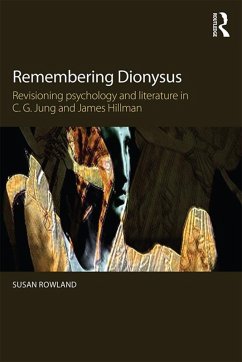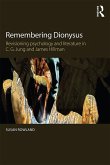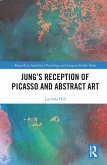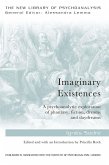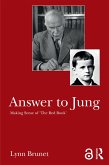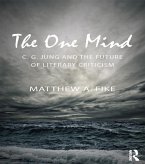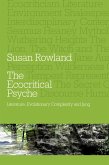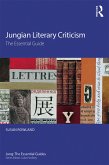Dieser Download kann aus rechtlichen Gründen nur mit Rechnungsadresse in A, B, BG, CY, CZ, D, DK, EW, E, FIN, F, GR, HR, H, IRL, I, LT, L, LR, M, NL, PL, P, R, S, SLO, SK ausgeliefert werden.
'In this new work Susan Rowland has given us a true gem. One of the foremost contemporary scholars in Jungian studies, Rowland has produced another remarkably engaging, erudite volume that continues to take depth psychological approaches out of the consulting room and into a larger world. The intersection of literature and myth being woven here is also artfully integrated into the emerging holistic paradigm associated with complexity studies. Rowland creatively advances Jungian studies revealing the depths of its transdisciplinary possibilities through her exploration of archetypal themes manifesting as Dionysian.' - Joe Cambray, Ph.D., Provost, Pacifica Graduate Institute; Past-President, IAAP
'That Jung was an intellectual in the tradition of Nietzsche, who dismembered his relation to the academy in order to create, in equally epigrammatic fashion, an intuitive critique of the very foundations of our understanding, not just of the texts by which we live, but of the way our lives have become texts, has been crucially grasped by Jung's most antischolastic follower, James Hillman. It is Susan Rowland, however, who makes good on the claim that this method of analysis has a future within the rigorous discipline of literary studies. One can only hope that she will be read with as open a mind as she displays in these well-wrought, lapidary chapters. Refocusing literary theory through a Dionysian rather than Apollonian lens, she identifies as her subject the vivifying experience of reading itself.' - John Beebe, author of Energies and Patterns in Psychological Type: The reservoir of consciousness (Routledge, 2017)
'Susan Rowland is herself a paragon of interdisciplinary scholarship, who has brought Jungian depth psychology into critical, creative relationship with literary studies, gender studies, cultural studies, eco-criticism, and much more. In the present book she uses the myth of Dionysus, importantly culminating in the god's marriage to the mortal Ariadne, as a zone of energy and awareness from which to argue against disciplinary and epistemological hegemonies and the cultural dismemberment they perpetuate. Performing as well as comprehending psychological insights from Jung and Hillman, Rowland champions transdisciplinarity, vitality, and the multiplicity and open-endedness of knowledge and being.' - Professor Roderick Main, University of Essex
'Susan Rowland's new study expands on a Dionysian concept as she defines it toward a transcendent discussion of genre, aligning it to the god, and finessing her theme that Jung was writing novels, the highest form for her, and epitomising the feminine. Establishing this and demonstrating it in her characteristic and brilliant close-up analyses of text, which is her forte, makes this is a satisfying and enigmatic work.' - Leslie Gardner PhD, co-founder of international literary agency Artellus, and founder member of IAJS, Fellow at the Centre Psychoanalytic Studies at the University of Essex, UK
"In an early example of this kind of transdisciplinary method, Rowland imagines the complementary nature of close reading and active imagination. Despite the supposed scientific nature of active imagination and the literary source of close reading, she finds both to be complementary means of interpretation, ways of awakening the soul buried within the data." - Richard M. Gray, PhD, Research Director for the Research and Recognition Project, Faculty of the Touro School of Osteopathic Medicine

